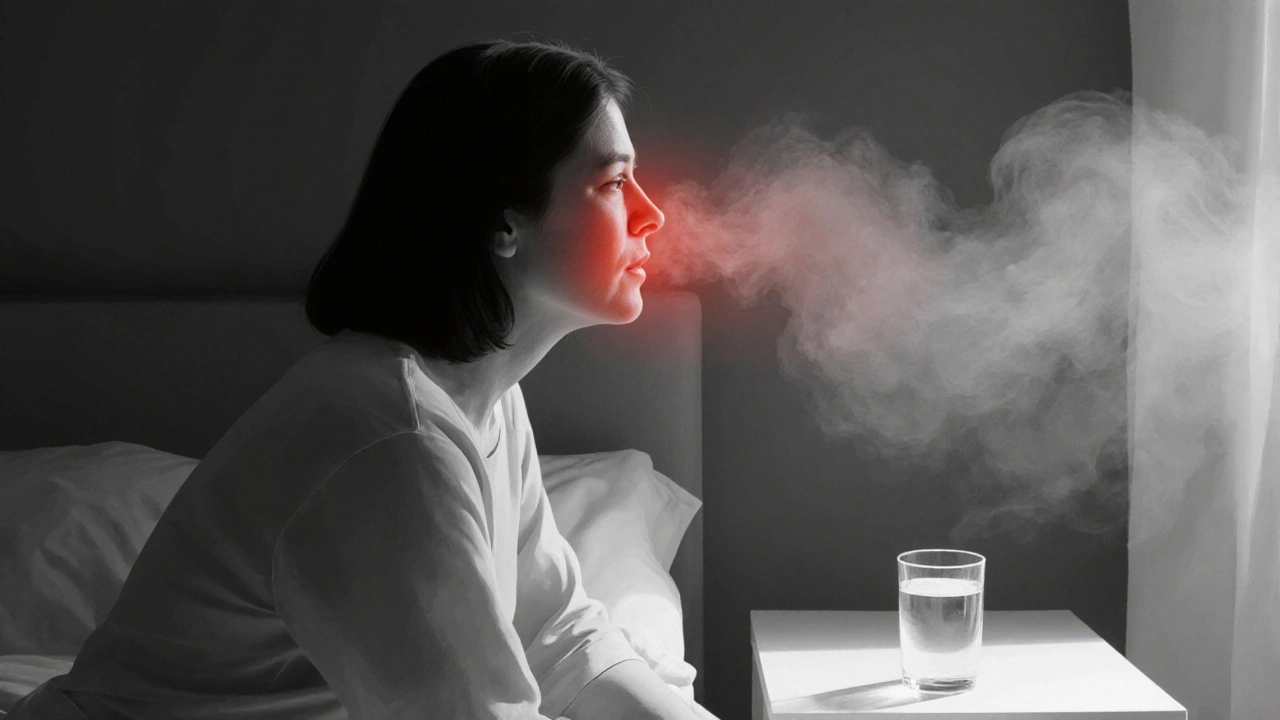Hot Flashes: What Causes Them and How to Manage Them
When your body suddenly feels like it’s been thrown into a sauna—even when the room is cool—you’re likely experiencing a hot flash, a sudden feeling of intense heat, often starting in the chest and spreading to the face and neck, commonly linked to hormonal changes during menopause. Also known as flushing, it’s one of the most disruptive symptoms for millions of women, and it doesn’t always show up with age. Hot flashes aren’t just uncomfortable—they can wreck sleep, mess with focus at work, and make social situations awkward. But they’re not random. They’re your body’s response to shifting estrogen levels, which throw off your brain’s internal thermostat. This isn’t just "getting old." It’s a biological signal with real triggers and real solutions.
Many people assume hot flashes only happen during menopause, the natural end of menstrual cycles, usually between ages 45 and 55, marked by declining estrogen and progesterone. But they can also show up during perimenopause, after cancer treatments, or even from certain medications and thyroid issues. If you’re under 40 and getting sudden heat waves, it’s worth checking with a doctor. Night sweats—hot flashes that happen while sleeping—are just as common and can leave you soaked, tired, and frustrated. The good news? You don’t have to just endure them. Lifestyle tweaks like cutting back on caffeine, avoiding spicy foods, and keeping your bedroom cool can make a big difference. Some women find relief with natural remedies, such as black cohosh, soy isoflavones, or paced breathing techniques that help regulate the nervous system. Others turn to hormone therapy, a medically supervised treatment that replaces declining estrogen to reduce symptoms. It’s not for everyone, but for many, it’s life-changing.
What you’ll find below are real, practical guides from people who’ve been there. From how to tell if your hot flashes are linked to something else, to what supplements actually help (and which ones are just hype), to how to talk to your doctor without feeling dismissed—these posts cut through the noise. You’ll see how one woman managed her symptoms with diet alone, how another found relief with a simple breathing trick, and why some meds work better for some people than others. No fluff. No guesswork. Just clear, tested advice.

Estrogen’s Impact on Menopause: What Every Woman Should Know
Explore how estrogen loss drives menopause symptoms, the role of hormone replacement therapy, and practical lifestyle tips to protect bone and heart health.
Read more